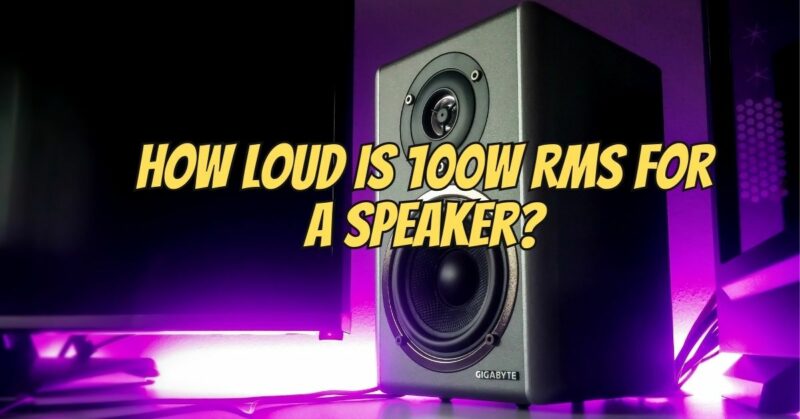The loudness of a 100-watt RMS (Root Mean Square) speaker depends on various factors, including the sensitivity of the speaker, the size of the listening space, and the nature of the audio source (music or sound content). RMS power is a measure of a speaker’s continuous power handling capacity, but it alone does not provide a direct indication of how loud the speaker will be.
To determine the perceived loudness of a 100-watt RMS speaker, consider the following:
- Speaker Sensitivity: The sensitivity rating of the speaker, typically measured in decibels (dB), plays a significant role in loudness. A speaker with higher sensitivity is more efficient at converting power into sound and will produce more volume for a given amount of power. Sensitivity ratings typically range from around 85 dB to 100 dB or more for consumer speakers.
- Listening Space Size: The size and acoustics of the room or space where you are using the speaker will affect perceived loudness. Larger rooms may require more power to fill with sound effectively, while smaller rooms may not need as much power for the same perceived volume.
- Amplifier Power: The amplifier or receiver driving the speaker should be matched appropriately in terms of power output. If you have a 100-watt RMS speaker, it’s advisable to use an amplifier with an output that matches or slightly exceeds the speaker’s power handling capacity for optimal performance.
- Sound Content: The nature of the audio source matters. Some music genres or audio content have wider dynamic ranges, meaning they have both quiet and loud passages. A more powerful amplifier can handle dynamic peaks without distortion, providing a more satisfying listening experience.
As a general reference, a 100-watt RMS speaker, when used with an appropriate amplifier and in a typical indoor room, can produce sound levels suitable for small to medium-sized gatherings or for enjoying music at home. It can deliver room-filling sound at moderate to high volumes without distortion when properly matched with the amplifier.
However, it’s important to remember that perceived loudness is subjective, and what one person considers “loud” may differ from another’s perception. Additionally, sound perception can be influenced by factors such as speaker placement, room acoustics, and individual hearing sensitivity.


